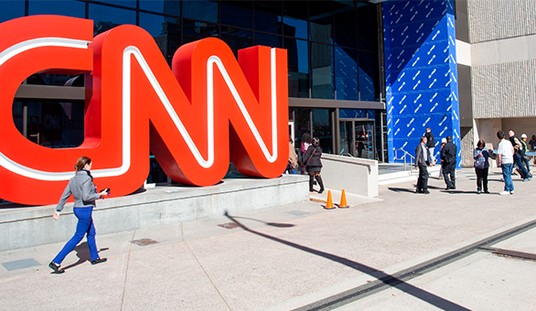=========
=========
Promoted from the diaries by streiff. Promotion does not imply endorsement.
=========
=========
Have you been to a movie lately and found it an eyebrow raising experience? Cast a curious “Am I really seeing this?” glance at the person you’re with? Maybe you’ve just shaken your head, looked around at the other people in the theater, read about the record money Hollywood is making, and think it is just you. Maybe you think getting old has distorted your memories of seeing movies, and that is was always like this only you didn’t realize it. Well, you’re wrong.
Yes, Hollywood appears to be making record profits, with The Force Awakens setting all sorts of records and Marvel movies running out an apparent non-stop stream of hits. And don’t discount all of the buzz and accolades about Black Panther. So, how can you be wrong?
Sales and profit are obviously very important to any industry. And that is what always gets dragged out and discussed to death. The problem with discussing revenue is it is misleading over long times. Inflation makes revenue appear to be going up while market share may be declining. And population growth masks lost sales potential. Revenue is important, but it might paint a misleading picture of an industry.
There is another very powerful metric which hasn’t received much notice: Market Penetration. Market penetration is simply “How much of ____ could you have sold?” Market penetration tells you who well you are doing. How many car buyers actually bought your car? Is your product expanding in the market? Stagnating? Declining? How many sales are you missing and what do people really think of your product?
For movies, market penetration isn’t published. But it is easy to reconstruct. First, we go to a website such as The-Numbers.com and compile an annual list of the top movies and the revenue they generated. Then we divide revenue by average movie ticket price for that year (courtesy of boxofficemojo) to get an estimate of ticket sales. Then we divide ticket sales by average US population for that year (just google it) to see what percentage of the available customers actually bought a ticket. Of course, the entire US population isn’t a perfect customer metric. Newborn babies rarely get into theaters, and neither do other segments. But the error will be constant in all estimates, so it is a fair metric. And besides, maybe at one time almost every man, woman, and child did see a movie…
So, lets have some fun. Here is the chart of market penetration of the #1 movie by year:

The list starts in 1975 with Jaws, coming in at a respectable 59%. Yes, Jaws got pretty close to selling tickets to 2/3 the US population. Pretty crazy, huh? But what happens 2 years later? Star Wars! 94%! What can you say? Maybe every man, woman, and child did go see that one! Wow, that is nuts! And you continue to see a steady-stream of mega-hits: The Empire Strikes Back (47%), ET (64%), Return of the Jedi (42%)! And then a little drought in the late 80s followed by some more big hits: Beauty and the Beast (35%), Jurassic Park (37%), The Lion King (38%), Titanic (53%), The Phantom Menace (33%).
I don’t need to read the whole list off. It is pretty stunning. But, did you notice something? It seems to be trending. Down. Despite all the hype, Back Panther would have been the #5 movie in 1977. Yes, four films in 1977 had deeper market penetration than Black Panther: Start War (94%), Close Encounters (34%), Saturday Night Fever (28%), and Smokey and the Bandit (26%). The trend is more obvious when you look at 5-year averages:

Hollywood has lost almost ½ of its market! So, what to make of all of this? If you have fond memories of seeing movies 20 years ago and feel something now is off, well your right. It’s not just you. It’s not that they are making movies for other people, they are simply making movies for fewer people.
And this brings up the obvious question: When will it end? Will Hollywood ever make true blockbusters like they used to? There are many reasons to think not. First, just look at Star Wars:

How can you take over a Franchise that started at 94% and take it to 7%, and not fire anyone? If you can’t own up to your failures and need to blame Russian trolls, no turn-around is possible. Can an industry so full of itself that no-one is good enough to host their Oscars ever admit they are crashing?
You could also brush all this off as the end of the blockbuster. After all, the downward trend is much flatter for 4th & 5th place showings. But that is simply saying that movies with little mass appeal will still generate little mass appeal. Hardly encouraging.
Then there is always the foreign market! Many movies now make more in foreign box offices than they do in the US. But the foreign market isn’t new. Those films in the 70s made plenty of money overseas. Yeah, you can bail on the US and pin your hopes on foreigners – if the democrats can survive by bringing in foreigners to overrun local elections and pad their seats in congress and the electoral college, why can’t Hollywood rely on foreigners to watch their movies? They can! Just keep cranking out those transformer movies and all will be well!
And, finally, there is the big elephant in the room: The Me-Too Movement. It isn’t the movement itself but what caused the movement. When President Trump said “Hollywood is great! You can grab women by their [you know what’s]”, plenty of people called him plenty of nasty names over this, but no-one called him a liar over it. Can you live and breathe in that environment and even relate to people, much less produce anything but boilerplate comic-book entertainment? How do you keep such decrepitness from leaking into the scripts and into the acting? Based on movie appeal, apparently you don’t.
What is my opinion? It might take a while to turn this around, but all hope is not lost. If Hollywood taught us anything, its that maybe you just can wander in a wretched hive of scum and villainy and find the scruffy hero you are looking for. Just remember to be cautious.














Join the conversation as a VIP Member